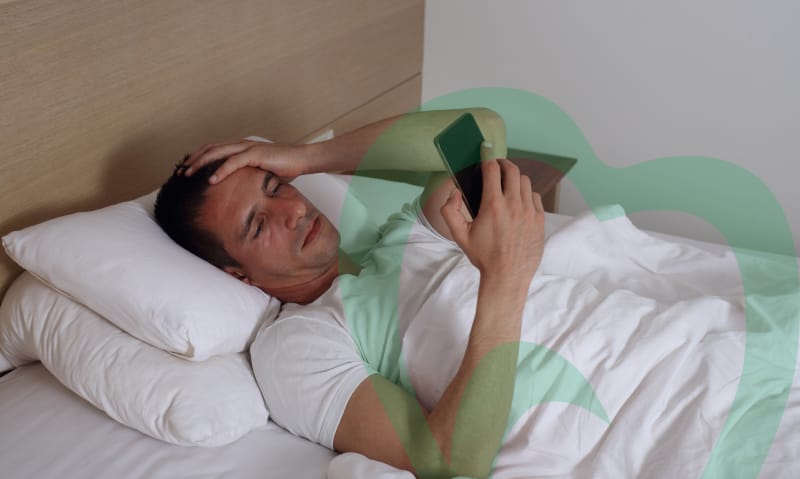How To Decide on the Best Course of Treatment for Your Obstructive Sleep Apnea

What You Should Know About Obstructive Sleep Apnea
According to the Centers for Disease Control and Prevention (CDC), 1 in 3 adults doesn’t get enough sleep. In fact, they report that adults between 18 and 60 need at least seven hours of sleep each night to maintain good overall health. When we get fewer than that, we’re at greater risk for developing conditions such as diabetes, obesity, high blood pressure, and mental distress. But many adults don’t get enough sleep because of lifestyle choices. Some might stay up too late reading a book or binge-watching a show on Netflix, while others try to cram too much activity into one day. But what happens when sleep apnea keeps you from getting those much-needed z’s?
Johns Hopkins explains that obstructive sleep apnea happens when your breathing is interrupted constantly during sleep, for more than 10 seconds at a time and at least five times per hour on average throughout your sleep period. Reading that definition is enough to make anyone feel tired. Because if your body is getting interrupted sleep that frequently, there is no doubt that you are waking up feeling tired day after day.
Additionally, the National Library of Medicine estimates that about 936 million adults suffer from obstructive sleep apnea. And of those, it is estimated that 425 million people lose sleep each night due to moderate or severe obstructive sleep apnea. That’s a lot of people! Thankfully, there is treatment for sleep apnea available.
Treatment for Sleep Apnea
To receive treatment for sleep apnea, your physician needs to diagnose you. Though dentists can recommend treatments for the ailment, they cannot diagnose that medical condition. Once you receive a diagnosis, your treatment will depend on the cause of your sleep apnea and its severity.
The most common contributing factors to sleep apnea are:
- Obesity
- Nasal deviation
- Enlarged tonsils
- Facial or oral abnormalities
- Smoking
Males are also at greater risk for developing obstructive sleep apnea than women.
Your medical team will help you determine the best course of action, and sometimes it takes a bit of trial and error to see what works best. In most cases, however, your doctor will first recommend using a CPAP machine. These devices provide continuous pressurized air through tubing into a mask you wear while sleeping. For many patients, the CPAP machine is highly effective.
But for others, they or their partner finds the device cumbersome and noisy. In these cases, your dentist may recommend using a custom-made mouth guard that you wear when you sleep. These mouth guards move the jaw forward to increase the size of the upper airway and prevent obstruction.
To summarize, the most common treatment options for sleep apnea include:
- Custom mouth guard: This dental appliance is an excellent option for mild to moderate cases of sleep apnea. Many people find them much more comfortable than CPAP therapy and, as a result, are more likely to use them.
- CPAP: This therapy might be necessary if your sleep apnea falls into the severe category (30 or more on the Apnea Hypopnea Index [API]). Some people with severe sleep apnea find the combination of a dental appliance and CPAP machine to work.
- Surgery: In the case of severe sleep apnea, you may need surgery to treat your nasal deviation or enlarged tonsils and allow you to sleep better.
Lifestyle Changes for Sleep Apnea Treatment
Your doctor or dentist might also recommend some lifestyle changes as a treatment for sleep apnea. The best things you can do to improve sleep apnea symptoms and your overall health are as follows:
- Get more physical activity. Obesity significantly contributes to obstructive sleep apnea. If you are overweight, work with your primary care provider and discuss an exercise plan that can help you shed some of that excess weight. You should get 30 minutes of moderate physical activity at least four or five times weekly.
- Eat a healthier diet. Combining an exercise regimen with a healthy diet will help you see results faster. Your doctor can help you determine the right calorie volume for your daily consumption. Most adults must consume at least 1,2000 calories per day (for women) or 1,500 calories per day (for men). Fuel your body with lean protein, fatty fish, and crunchy fruits and vegetables. Lower your intake of sugars and starches if possible.
- Quit smoking and only drink alcohol in moderation. Smoke exposure can contribute to airway inflammation, predisposing it to collapse. Not only that, but smoking and alcohol consumption increase your likelihood of developing various cancers and other chronic conditions.
- Ask your physician about medication modifications. Some medications can have a muscle-relaxing effect that is best avoided if you have sleep apnea. If possible, avoid muscle relaxers, high-dose benzodiazepines, testosterone, atypical antipsychotics, or other drugs commonly linked to weight gain.
- Experiment with alternate sleeping positions. When you sleep on your back, you are not only more likely to snore, but it also leverages gravity to pull those soft tissues in your throat downward, increasing the chance of an airway blockage while you sleep.
- Treat nasal congestion. If you have nasal congestion, determine the root cause and seek treatment.
Ready to try a mouth guard for your sleep apnea? Contact The Tooth Doc.
The Tooth Doc is your preferred dentist in Omaha. We’ve helped hundreds of patients sleep better by creating custom-made mouth guards. Why suffer any longer? If you have received a sleep apnea diagnosis and the CPAP machine isn’t cutting it, request an evaluation with us today.